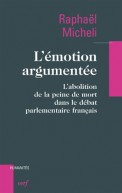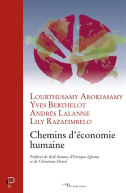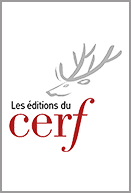
Précis de l'action
Collection Passages
240 pages - sept. 2012
31,90€
Qu'est-ce que l'action ? Une rupture dans le cours du temps, une prise de risques, un commencement. L'agent, tel le plongeur quittant le bord, ne peut revenir en arrière ; l'exécution l'engage tout entier, corps et âme ; il doit faire confiance au monde, aux autres et à lui-même. C'est par l’action que la nouveauté entre dans la nature et dans l’histoire. Ces caractères de l'action sont-ils universels ou varient-ils selon les cultures et les époques ? Bien qu'il existe différents styles d'action, les modélisations dramatiques (par le récit) et mathématiques (par le calcul) du phénomène en font ressortir l’unité. En même temps, la dualité du dramatique et du mathématique est insurmontable, sans doute parce que l'histoire humaine est tragique et que la tragédie se prête mal au calcul mathématique. L'action nous révèle notre identité — y compris nos faiblesses — et commande notre destin. Cet essai fait le pari que les hommes peuvent faire prévaloir la raison pour régler les conflits. Il considère la notion chrétienne de communion des saints comme une source majeure des essais politiques et scientifiques pour nous faire prendre la mesure de l’unité du genre humain, malgré la tentation de nous enfermer dans des « sociétés closes ».
--
In this reflection on action, the author first examines the diversity of styles through three examples: French, English and German schools. But different manners of acting, which vary throughout the nations and epochs, must not be allowed to veil the unity of the phenomenon as it can be observed in its dramatic modelling and in social mathematics: from Pascal and Fermat to von Nzumann and Nash. Yet the agent comes up against collective constraints and his own limitations, which is similar to the experience of suffering in the soul. So action has a metaphysical effect: it reveals our identity to us and engages our destiny. The author places his bets that men can, in this way, access a realistic and rational universalism. He considers the Christian notion of the ‘communion of saints’ as a major source of political and scientific essays that think human interaction and studies how the new architecture of knowledge influences the procedure and the aims of action.
--
In this reflection on action, the author first examines the diversity of styles through three examples: French, English and German schools. But different manners of acting, which vary throughout the nations and epochs, must not be allowed to veil the unity of the phenomenon as it can be observed in its dramatic modelling and in social mathematics: from Pascal and Fermat to von Nzumann and Nash. Yet the agent comes up against collective constraints and his own limitations, which is similar to the experience of suffering in the soul. So action has a metaphysical effect: it reveals our identity to us and engages our destiny. The author places his bets that men can, in this way, access a realistic and rational universalism. He considers the Christian notion of the ‘communion of saints’ as a major source of political and scientific essays that think human interaction and studies how the new architecture of knowledge influences the procedure and the aims of action.
- Dimensions : 145x235x20
- ISBN : 9782204096553
- Poids : 390 grammes






